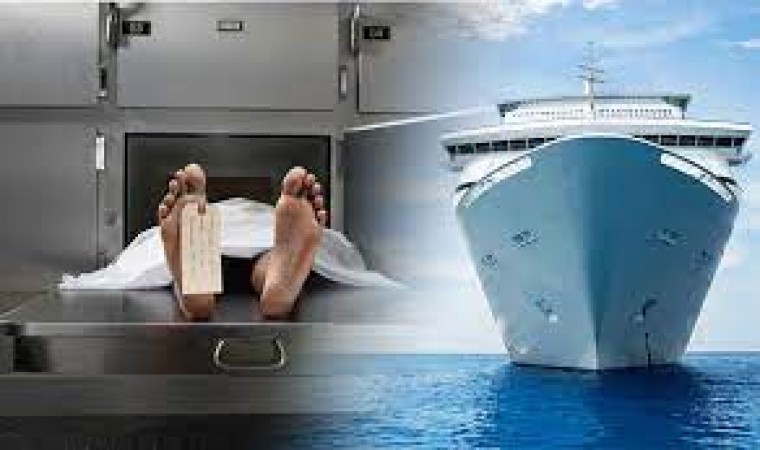
Traveling on a cruise ship is often associated with leisure, relaxation, and adventure. However, like any other mode of transportation, cruise ships also face the inevitable reality of mortality. When a passenger passes away onboard, it raises questions about what happens next, particularly when the vessel is far from any landmass. Understanding the protocols for managing deceased passengers on cruise ships can provide insight into this intriguing aspect of maritime travel.
1. Immediate Response and Notification
When a passenger is reported deceased onboard a cruise ship, the crew initiates an immediate response protocol. This typically involves notifying the ship's medical team and relevant authorities. Prompt action is crucial to ensure the safety and well-being of all passengers and crew members.
2. Securing the Scene
After receiving the report of a passenger's passing, the crew secures the scene to preserve evidence and maintain the dignity of the deceased. This may involve restricting access to the area and documenting the circumstances surrounding the death.
3. Dedicated Facilities
Cruise ships are equipped with dedicated facilities to handle medical emergencies, including fatalities. These facilities may include onboard morgues or designated storage areas where the deceased can be respectfully cared for until arrangements are made.
4. Refrigeration Units
To preserve the body, cruise ships are equipped with refrigeration units in their morgue facilities. These units help slow down the natural decomposition process, allowing time for the necessary arrangements to be made.
5. Coordination with Authorities
When a death occurs onboard, cruise ship authorities coordinate with relevant authorities, such as port authorities and law enforcement agencies, to ensure compliance with local regulations and procedures. This collaboration helps facilitate the appropriate handling of the situation.
6. Communication with Next of Kin
Cruise ship personnel prioritize communication with the next of kin of the deceased. They provide support and assistance to the family members, including arranging for transportation home and offering condolences and assistance during this difficult time.
7. Respectful Services at Sea
Many cruise lines offer onboard services to honor and remember the deceased. These may include memorial services or ceremonies conducted by the ship's chaplain or other religious leaders. These services provide comfort and closure to passengers and crew members affected by the loss.
8. Legal Considerations
Handling a deceased passenger onboard a cruise ship involves navigating various legal considerations, including jurisdictional issues and compliance with international maritime laws. Cruise lines must adhere to established protocols and regulations to ensure legal compliance and uphold the rights of the deceased and their families.
9. Documentation and Reporting
Cruise ship authorities are required to maintain detailed documentation and reporting procedures regarding any deaths that occur onboard. This documentation helps ensure transparency and accountability and may be used for legal and regulatory purposes.
10. Cultural Sensitivity
Cruise lines recognize the importance of cultural sensitivity when dealing with the deceased and their families. They strive to accommodate diverse cultural and religious practices to honor the wishes of the deceased and their loved ones.
11. Support for Passengers and Crew
In addition to supporting the family of the deceased, cruise lines provide assistance and support to passengers and crew members who may be affected by the loss. This may include counseling services, support groups, and other resources to help individuals cope with grief and loss.
12. Preparation for Onshore Arrival
When a cruise ship returns to port with a deceased passenger onboard, preparations are made to ensure a smooth and respectful transition. This may involve coordinating with local authorities and funeral homes to facilitate the repatriation process.
13. Repatriation Process
Repatriating the remains of a deceased passenger involves coordinating transportation arrangements with the relevant authorities and funeral service providers. Cruise lines work closely with the family of the deceased to ensure their wishes are met and to provide assistance throughout the repatriation process.
14. Transparency and Accountability
Cruise lines prioritize transparency and accountability in their handling of deceased passengers. They strive to keep passengers informed about any incidents that occur onboard and take steps to address any concerns or questions that may arise.
15. Continuous Improvement
Cruise lines are committed to continuously improving their protocols and procedures for managing deceased passengers onboard. They conduct thorough reviews and evaluations of incidents to identify areas for improvement and implement measures to enhance safety and security.
16. Professional Training and Development
Cruise ship personnel undergo rigorous training and development programs to prepare them for handling medical emergencies, including fatalities. This training includes instruction on proper procedures for preserving evidence, communicating with family members, and providing support to passengers and crew members.
17. Ethical Considerations
Ethical considerations play a significant role in the handling of deceased passengers onboard cruise ships. Cruise lines prioritize the dignity and respect of the deceased and their families while ensuring compliance with legal and regulatory requirements.
18. Collaborative Efforts
Managing deceased passengers onboard a cruise ship requires collaboration and cooperation among various stakeholders, including cruise line personnel, authorities, and funeral service providers. By working together, these stakeholders can ensure the efficient and compassionate handling of such incidents.
19. Industry Standards
Cruise lines adhere to industry standards and best practices for managing deceased passengers onboard. These standards are developed in consultation with experts in maritime law, medical services, and emergency management to ensure the highest level of care and professionalism.
20. Passenger Awareness and Education
Cruise lines prioritize passenger awareness and education regarding onboard safety and emergency procedures, including protocols for handling medical emergencies and fatalities. By providing passengers with the information they need to make informed decisions, cruise lines empower them to travel with confidence and peace of mind.
Tata-Owned Air India Cuts 180 Jobs, Cites Business Streamlining
Top 10 Wholesale Business Ideas
You can register the location of your home on Google Maps, know the process